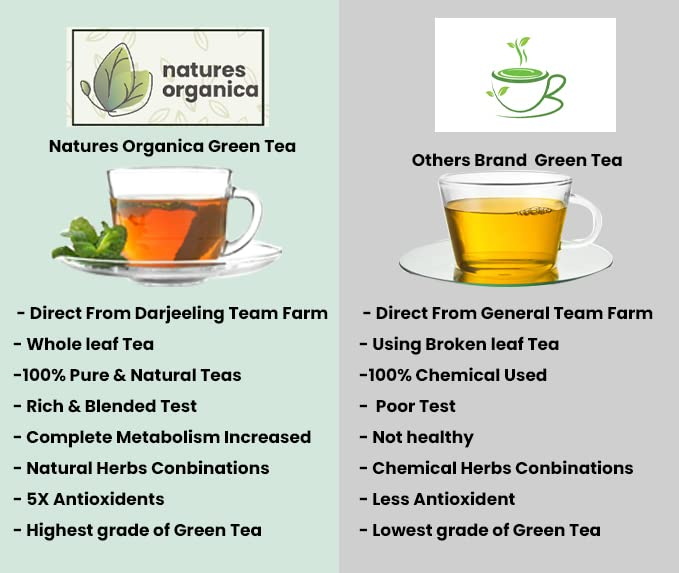Content Menu
● What is Green Tea Extract?
● Potential Benefits of Green Tea Extract
● Potential Risks and Considerations
>> The Role of Selenium
>> Dietary Considerations
>> Lifestyle Factors
>> Navigating the Conflicting Information
>> Future Research Directions
>> Dosage and Consumption
● Conclusion
● FAQ: Green Tea Extract and Thyroid Health
>> 1. Can green tea extract cause hypothyroidism?
>> 2. Is green tea extract safe for people with Hashimoto's Thyroiditis?
>> 3. Can green tea extract help with hyperthyroidism or Graves' Disease?
>> 4. Does fluoride in green tea extract affect thyroid function?
>> 5. How does green tea extract interact with thyroid medication?
● Citations:
Green tea extract (GTE) has garnered considerable attention for its potential health benefits, ranging from cardiovascular support to anti-cancer properties[3]. However, its impact on thyroid health remains a topic of debate and ongoing research[1][2]. This article aims to explore the multifaceted relationship between green tea extract and thyroid function, examining both the potential benefits and risks associated with its consumption.

What is Green Tea Extract?
Green tea extract is derived from the leaves of the *Camellia sinensis* plant, the same plant that produces green tea, black tea, and oolong tea[2]. The key difference lies in the processing methods. Green tea is made from unfermented leaves, preserving its high concentration of polyphenols, particularly catechins[3]. These catechins, including epigallocatechin gallate (EGCG), are responsible for many of the purported health benefits of green tea extract[3].
Potential Benefits of Green Tea Extract
1. Antioxidant Properties: Catechins in green tea extract exhibit potent antioxidant activity by scavenging free radicals, chelating redox-active transition-metal ions, and inhibiting pro-oxidant enzymes[3]. This antioxidant action can protect against cellular damage caused by oxidative stress[3].
2. Cardiovascular Health: Green tea extract may improve cardiovascular health by regulating vascular tone through the activation of endothelial nitric oxide, which helps maintain vascular homeostasis and protect blood vessels[3]. Additionally, catechins can inhibit key enzymes involved in lipid biosynthesis and reduce intestinal lipid absorption, thereby improving blood lipid profiles[3].
3. Weight Management: Green tea extract has been shown to improve insulin sensitivity, which can play a role in weight management[3]. Some studies suggest that green tea consumption can reduce fasting glucose and hemoglobin A1c concentrations[3]. However, the weight loss benefits of green tea may vary among individuals[3].
4. Cancer Prevention: Numerous studies suggest that green tea may help prevent the development of certain cancers, including prostate, ovarian, skin, lung, liver, colon, and pancreatic cancers[3]. One study indicated that high green tea consumption might be positively associated with premenopausal thyroid cancer risk but inversely associated with postmenopausal thyroid cancer[3].
5. Immune System Modulation: Green tea extract may modulate the immune system, potentially benefiting individuals with autoimmune thyroid conditions like Graves' Disease and Hashimoto's Thyroiditis[3]. EGCG has been associated with suppressed proliferation of autoreactive T cells, reduced production of pro-inflammatory cytokines, and increased Treg populations[3].

Potential Risks and Considerations
1. Antithyroid Activity: Some evidence suggests that catechins in green tea extract may exhibit antithyroid activity when consumed in high doses[1][3]. Studies on rats have shown that high doses of green tea extract can lead to hypertrophy and/or hyperplasia of the thyroid follicles, decreased activity of thyroid peroxidase and 5'-deiodinase I, and elevated thyroidal Na, K+-ATPase activity[1]. These effects can result in reduced serum T3 and T4 levels, followed by an elevation of serum TSH[1].
2. Goitrogenic Effects: High consumption of green tea extract has been linked to goiters and thyroid gland enlargement in animal studies[4][6]. This goitrogenic effect may be a concern for individuals with hypothyroidism or Hashimoto's Thyroiditis, who may want to limit their green tea consumption[3].
3. Fluoride Content: Green tea contains fluoride, which may contribute to the inhibition of thyroid function[3]. Individuals concerned about fluoride intake can opt for fluoride-free green tea[3].
4. Interaction with Thyroid Medication: Caffeine in green tea may interact with thyroid medication like levothyroxine, potentially decreasing its effectiveness by lowering T4 levels[6]. It is advisable to separate the consumption of green tea from the intake of thyroid medication[6].
5. Liver Toxicity: Concentrated green tea extract can be toxic to liver cells, although this is rare[3]. Caution is advised when taking large doses of green tea extract supplements[3].
The Role of Selenium
Selenium is an essential trace mineral that plays a crucial role in thyroid hormone metabolism. It is a component of several selenoproteins, including glutathione peroxidases, which protect the thyroid gland from oxidative damage, and iodothyronine deiodinases, which convert T4 (thyroxine) into the more active T3 (triiodothyronine).
Some studies suggest that selenium supplementation may be beneficial for individuals with autoimmune thyroid diseases like Hashimoto's Thyroiditis. However, the interaction between green tea extract and selenium levels in the body is not fully understood. It's possible that the antioxidant properties of GTE could complement the protective effects of selenium on the thyroid gland. Further research is needed to explore this potential synergy.
Dietary Considerations
A balanced diet rich in essential nutrients is vital for optimal thyroid function. Iodine, selenium, zinc, iron, and vitamin D are all important for thyroid hormone synthesis and regulation. Individuals with thyroid conditions should ensure they are consuming adequate amounts of these nutrients through their diet or supplements.
While green tea extract can be a part of a healthy diet, it should not be considered a substitute for a well-rounded nutritional plan. It's crucial to maintain a balanced approach and prioritize whole, unprocessed foods.
Lifestyle Factors
Stress management, regular exercise, and adequate sleep are also important for thyroid health. Chronic stress can negatively impact thyroid function by disrupting the hypothalamic-pituitary-thyroid (HPT) axis. Exercise can improve insulin sensitivity and metabolic rate, which can be particularly beneficial for individuals with hypothyroidism. Sufficient sleep is essential for hormone regulation and overall well-being.
Navigating the Conflicting Information
The conflicting information surrounding green tea extract and thyroid health can be confusing. It's important to approach this topic with a critical eye and to consider the following factors:
-Dosage: The effects of GTE appear to be dose-dependent, with high doses potentially posing risks.
-Individual Variability: The impact of GTE can vary among individuals, depending on their underlying health conditions, genetic predisposition, and lifestyle factors.
-Research Limitations: Many studies on GTE and thyroid health have been conducted on animals or in vitro, and more human studies are needed to confirm these findings.
-Source and Quality: The quality of GTE supplements can vary, and it's important to choose reputable brands that undergo third-party testing.
Ultimately, the decision of whether or not to consume green tea extract should be made in consultation with a healthcare professional. They can assess your individual risk factors and provide personalized recommendations based on your specific needs.
Future Research Directions
Further research is needed to fully elucidate the relationship between green tea extract and thyroid health. Future studies should focus on:
-Investigating the effects of different doses of GTE on thyroid hormone levels in humans.
-Examining the interaction between GTE and thyroid medication.
-Evaluating the impact of GTE on individuals with autoimmune thyroid diseases.
-Exploring the potential synergy between GTE and other thyroid-supportive nutrients like selenium.
Dosage and Consumption
The impact of green tea extract on thyroid health appears to be dose-dependent. While moderate consumption (one to two cups per day) may offer health benefits, high doses could pose risks, especially for individuals with thyroid conditions.
Conclusion
Green tea extract presents a mixed bag of potential benefits and risks for thyroid health. While its antioxidant, cardiovascular, weight management, and immune-modulating properties are promising, its antithyroid and goitrogenic effects warrant caution, particularly for individuals with thyroid disorders. Moderate consumption of green tea is generally considered safe, but high doses of green tea extract should be approached with caution, and consultation with a healthcare professional is recommended.

FAQ: Green Tea Extract and Thyroid Health
1. Can green tea extract cause hypothyroidism?
High doses of green tea extract have been shown to potentially inhibit thyroid activity, which may lead to hypothyroidism in some individuals. However, this is more likely to occur with excessive consumption rather than moderate intake.
2. Is green tea extract safe for people with Hashimoto's Thyroiditis?
People with Hashimoto's Thyroiditis should exercise caution when consuming green tea extract due to its potential antithyroid effects. While small amounts are likely safe, large quantities could interfere with thyroid function.
3. Can green tea extract help with hyperthyroidism or Graves' Disease?
Some believe that the antithyroid properties of green tea extract might benefit individuals with hyperthyroidism or Graves' Disease. However, there is limited scientific evidence to support this claim, and it is essential to consult with a healthcare provider before using green tea extract for this purpose.
4. Does fluoride in green tea extract affect thyroid function?
Yes, fluoride in green tea may affect thyroid function. If you are concerned about fluoride intake, consider purchasing fluoride-free green tea.
5. How does green tea extract interact with thyroid medication?
Caffeine in green tea can interact with thyroid medication like levothyroxine, potentially reducing its effectiveness. It is best to take your thyroid medication separately from when you consume green tea.
Citations:
[1] https://pubmed.ncbi.nlm.nih.gov/20561943/
[2] https://pubmed.ncbi.nlm.nih.gov/20801949/
[3] https://www.naturalendocrinesolutions.com/articles/green-tea-thyroid-health/
[4] https://www.healthieruny.com/resources/which-tea-is-good-for-hypothyroidism
[5] https://journals.viamedica.pl/folia_morphologica/article/view/75653
[6] https://www.palomahealth.com/learn/best-tea-hypothyroidism
[7] https://www.verywellhealth.com/green-tea-extract-increases-metabolism-3231594
[8] https://www.verywellhealth.com/how-herbs-can-affect-thyroid-disease-3997544






























